Big City Fireboats
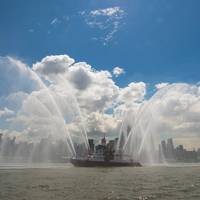
On March 3, the Coast Guard published a notice that Martin Midstream Partners (MMP), a petrochemical transport and storage company, was seeking approval to modify terminal operations in Beaumont, Texas, along the Sabine-Neches Waterway. If approved, MMP would expand its liquefied hazardous gas (LHG) operations, both in volume and products. Instead of just handling ammonia the change would allow shipments of butane, propane, ethane, ethylene and propylene.Critically, MMP’s expansion would increase LHG vessel transit from 24 ships to as many as 350 per year.
Dispersants ... Will we ever be able to use them again?
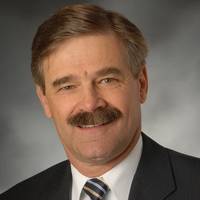
On January 22, 2015, the Environmental Protection Agency (EPA) published a Proposed Rule on dispersants. The Proposed Rule drastically changes the EPA’s approach to dispersants and could imperil proven and effective means of responding to marine oil disasters. The Proposed Rule seems to be written from the perspective that dispersants are dangerous and should not be used and seeks to establish new toxicity and other standards. This approach may have the practical effect of prohibiting the use of dispersants when needed.
M/V Cape Ray: Last Stop for Syrian Chemical Weapons
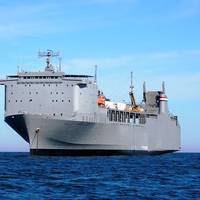
As I write, the M/V Cape Ray, a 648-foot roll-on/roll-off Ready Reserve Force ship is steaming under orders towards Gioia Tauro, Italy, to load hundreds of tons of Syrian Government chemical weapon agents and precursor chemicals, before neutralizing them at sea. With innovative safe-destruction technology welded to its decks, the Cape Ray is the United States’ key contribution to the joint Organization for the Prohibition of Chemical Weapons (OPCW) / United Nations international effort to eliminate the Syrian stockpile of chemical weapons…
Johnson Matthey’s New Engines for Tier 4 Compliance
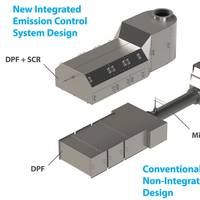
To meet the emission limits for of the EPA’s New Source Performance Standards, new engines will come from the factory with low NOx, PM, CO and HC emissions. For existing engines, Johnson Matthey introduces a Tier 4 solution with its compact and efficient integrated SCRT (Selective Continuously Regenerating Technology) system combining its CRT diesel particulate filter (DPF) and SCR technology making it the best available retrofit technology on the market today. Recognizing the need for a compact retrofit design capable of fitting into small spaces…
LNG: Now Powering Vessels – and New Safety Regulations
New Hazards, New Regulatory Concerns and New Solutions. According to global classification society DNV, as much as 50 percent of the world’s maritime fleet could be duel fuel-powered, as early as 2020. The lure of LNG is understandable – cleaner burning fuels, potentially lower maintenance costs, better efficiencies and lower fuel cost all can counted amongst the growing reasons to take the leap. But, owner/operators considering LNG to power vessels must understand the fire hazards present, the various fire protection solutions and the codes that regulate them. In the rapidly emerging LNG market, it’s important for ship owners and builders to understand just how different fire safety standards are for LNG ships versus diesel.
Responder Immunity
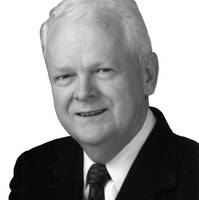
Not long after specialized tank ships were developed, enabling the carriage of large quantities of oil and petroleum products, groundings, collisions, and other casualties started causing significant oil spills. In those early days, there was no financial incentive to clean up such spills. To the extent that there was a response, it was often by Good Samaritans, a term derived from a parable found in the Bible at Luke 10:25-37 about a stranger from Samaria who, with no thought of reward, came to the aid of an injured robbery victim in Judah.
Boat-towed Detectors Assist Researchers and Salvors
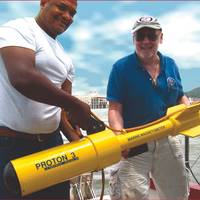
A number of archaeological groups and marine service companies are acquiring boat-towed metal detectors to assist in locating shipwrecks and to perform geophysical surveys. These devices can locate a variety of targets including the piles of magnetic ballast stones found on many old wrecks, gold and silver bars, cannons, anchors, pipelines, cables, and various metal debris which must be removed from an area before dredging. The two primary pieces of equipment used in these operations are a magnetometer and pulse induction (PI) metal detectors.
The Layered Approach from a One-Stop-Shop
The rush to shore up security along all links of the transportation chain — and the multi-billion dollar budgets that go with them — have naturally brought companies out of the woodwork in what some see as a dash for cash. While the Department of Homeland Security, still relatively in its infancy, has been prudent in the award of contracts to date, the proliferation of funds seems to be loosening in the estimation of many interested parties, and companies that can exhibit a long and strong history of supplying integrated security solutions should obviously have a strategic advantage. Smiths Detection is such a company, offering a history of successfully providing security solutions to both civil and military clients, dealing from a vast product and system arsenal.
Petrobras Sends 20 Ships To Monitor Oil Spill
Petrobras moved about 200 men and 20 ships to monitor oil spilled offshore after the world's biggest rig was rocked by blasts and sank earlier this month. On March 15, three blasts ripped through Petrobras' 40-storey platform, the world's biggest oil rig, killing 11 and spilling about 11,000 gallons of diesel oil. Petrobras has mobilized 11,000 m of retaining barriers, 21 oil collecting units, 18 suction pumps and 40,000 liters of dispersing chemical agent to the platform off the coast of Rio state, the firm said in a statement. "Luckily for everybody it was not an environmental disaster," said Carlos Henrique Mendes, regional director for Brazil's state environmental institute, Ibama.
HSA Focuses on Homeland Security
The Homeland Security Industries Association (HSIA), kicked off its formation today by presenting seven position statements that recommend how government and industry can work together on critical homeland security areas. The HSIA position statements address airport security; port and maritime security; protection against bio-terrorism and chemical agent attacks, radiological and nuclear security; critical infrastructure protection and physical security; information technology security; security equipment and information sharing security; and best business practices. HSIA is a non-profit organization founded by Washington attorney Bruce Aitken, Co-chair of Aitken, Irvin, Berlin & Vrooman, LLP, who serves as its President.







